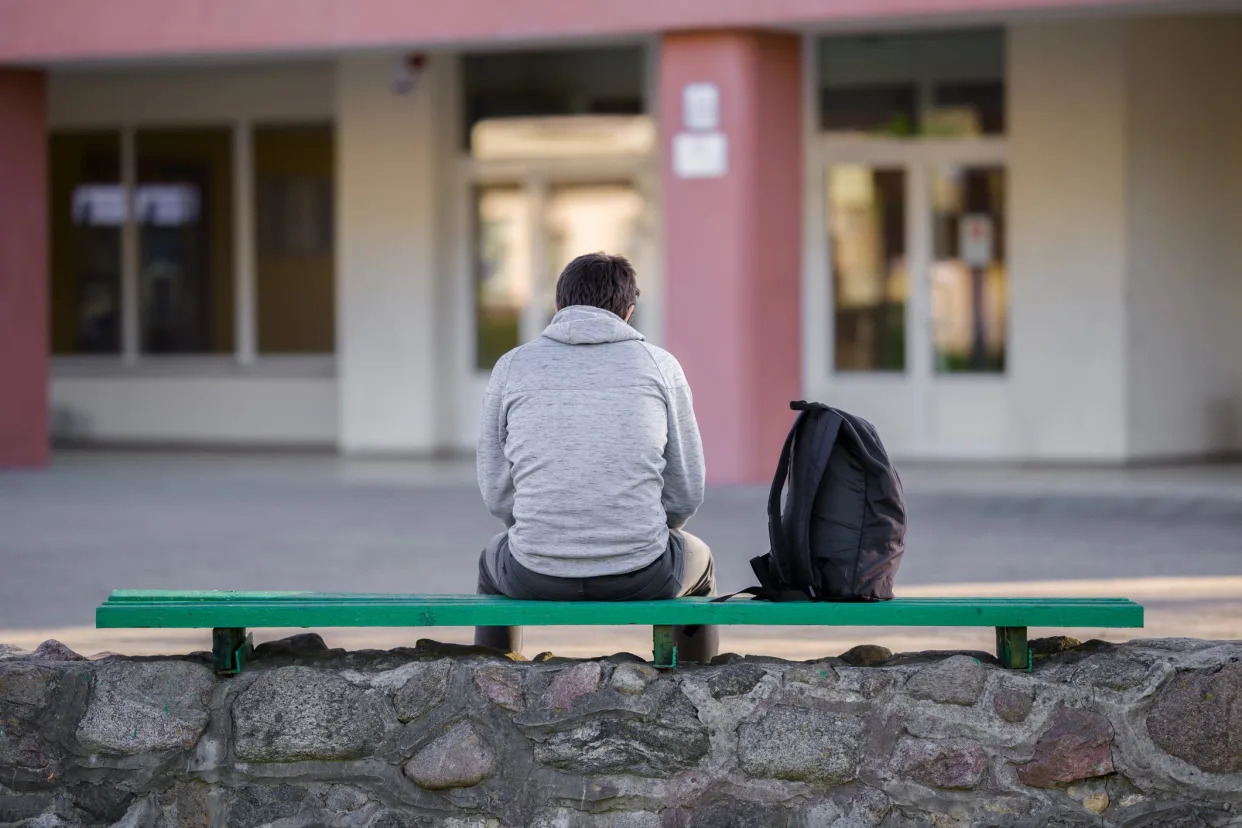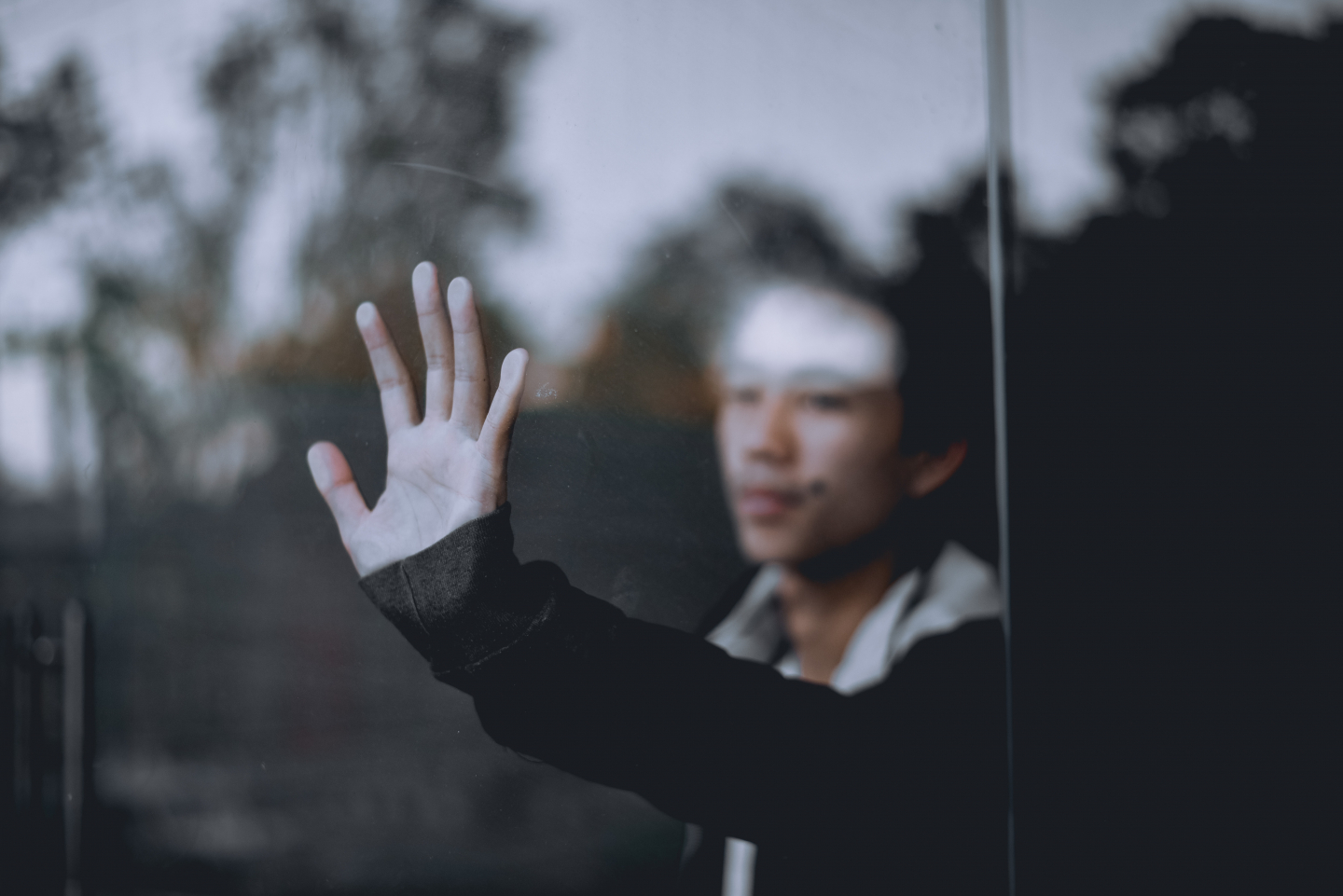I'm so thankful I have you deginerates!
---------------
Sun, December 24, 2023 at 4:09 AM CST·7 min read

America has a new epidemic. It can’t be treated using traditional therapies even though it has debilitating and even deadly consequences.
The problem seeping in at the corners of our communities is loneliness and U.S. Surgeon General Dr. Vivek Murthy is hoping to generate awareness and offer remedies before it claims more lives.
“Most of us probably think of loneliness as just a bad feeling,” he told USA TODAY. “It turns out that loneliness has far greater implications for our health when we struggle with a sense of social disconnection, being lonely or isolated.”
Loneliness is detrimental to mental and physical health, experts say, leading to an increased risk of heart disease, dementia, stroke and premature death. As researchers track record levels of self-reported loneliness, public health leaders are banding together to develop a public health framework to address the epidemic.
“The world is becoming lonelier and there’s some very, very worrisome consequences,” said Dr. Jeremy Nobel, founder of The Foundation for Art and Healing, a nonprofit that addresses public health concerns through creative expression, which launched an initiative called Project Unlonely.
“It won’t just make you miserable, but loneliness will kill you," he said. "And that’s why it’s a crisis."
Because it’s so subjective, not everyone feels loneliness the same way or for the same reason.
Nobel argues in his book, “Project Unlonely: Healing our Crisis of Disconnection,” there are three types of loneliness: psychological, social and existential.
Some may experience psychological loneliness when they don’t feel like they have anyone to confide in or trust. Societal loneliness is feeling systemically excluded because of a characteristic, including gender, race or disability. Existential, or spiritual, loneliness comes from feeling disconnected from oneself.
“People can have all of these loneliness types at the same time,” said Nobel, who is on the faculty at Harvard Medical School and Harvard T.H. Chan School of Public Health.
Loneliness is experienced throughout a person's lifespan, he said, and it can spiral as a result of trauma, illness and the effects of aging. It can also be exacerbated by technology taking the place of human interaction, which helps explain why young people report the highest rates of loneliness.
A Harvard survey conducted in 2020 found that 61% of adults from 18 to 25 reported feeling serious loneliness, compared to 39% across the general population.
Other populations that report high prevalence of loneliness and isolation include people with poor physical and mental health, disabilities, financial insecurity, those who live alone, single parents and older populations.
“This is why it’s so complicated when you try to address loneliness as a population health topic because it’s so varied based on the
circumstances individuals have to navigate,” Nobel said.
As the American population becomes older and sicker with chronic diseases, the loneliness numbers have increased, Nobel said. Modern conveniences have also caused loneliness to expand dramatically across the population, especially since the COVID-19 pandemic.
Data from the University of Michigan's National Poll on Healthy Aging showed loneliness among 50- to 80-year-olds had increased from 27% in October 2018 to 56% in June 2020, at the height of pandemic-era restrictions.
Self-reported feelings of loneliness decreased to 34% in January 2023, and although the problem is not “as severe as it was during the pandemic, it remains elevated compared to before the pandemic,” said Lindsay Kobayashi, John G. Searle assistant professor of epidemiology and global public health at the University of Michigan School of Public Health.
COVID-19 prompted a boom in delivery services and Zoom meetings, Murthy said which sustained society, schools and workplaces after restrictions on social distancing lifted. As a result, there are fewer opportunities for Americans to interact in person and build social connections.
“We have to be intentional about building social connections in our life,” he said. People are also more likely to change jobs or move around the country due to the rise in remote work, which can disrupt meaningful connections.
Social media has accelerated loneliness as research shows feeling lonely is more common among heavy users of these sites. Although "likes" and "followers" may make a person feel good in the moment, they don't foster genuine connectedness with other people, Murthy said.
The Harvard study found that 43% of young adults reported increases in loneliness since the outbreak of the pandemic. About half reported that no one in the past few weeks had “taken more than just a few minutes” to ask how they were doing in a way that made them feel like the person “genuinely cared.”
“You can be surrounded by lots of people and you can have lots of followers or connections on social media, but not necessarily feel like you’ve got somebody who knows you or shows up for you in a crisis,” he said.
---------------
Americans are lonely and it’s killing them. How the US can combat this new epidemic.
Adrianna Rodriguez, USA TODAYSun, December 24, 2023 at 4:09 AM CST·7 min read
America has a new epidemic. It can’t be treated using traditional therapies even though it has debilitating and even deadly consequences.
The problem seeping in at the corners of our communities is loneliness and U.S. Surgeon General Dr. Vivek Murthy is hoping to generate awareness and offer remedies before it claims more lives.
“Most of us probably think of loneliness as just a bad feeling,” he told USA TODAY. “It turns out that loneliness has far greater implications for our health when we struggle with a sense of social disconnection, being lonely or isolated.”
Loneliness is detrimental to mental and physical health, experts say, leading to an increased risk of heart disease, dementia, stroke and premature death. As researchers track record levels of self-reported loneliness, public health leaders are banding together to develop a public health framework to address the epidemic.
“The world is becoming lonelier and there’s some very, very worrisome consequences,” said Dr. Jeremy Nobel, founder of The Foundation for Art and Healing, a nonprofit that addresses public health concerns through creative expression, which launched an initiative called Project Unlonely.
“It won’t just make you miserable, but loneliness will kill you," he said. "And that’s why it’s a crisis."
What is loneliness?
Loneliness occurs when the connections a person needs in life are greater than the connections they have, Murthy said.Because it’s so subjective, not everyone feels loneliness the same way or for the same reason.
Nobel argues in his book, “Project Unlonely: Healing our Crisis of Disconnection,” there are three types of loneliness: psychological, social and existential.
Some may experience psychological loneliness when they don’t feel like they have anyone to confide in or trust. Societal loneliness is feeling systemically excluded because of a characteristic, including gender, race or disability. Existential, or spiritual, loneliness comes from feeling disconnected from oneself.
“People can have all of these loneliness types at the same time,” said Nobel, who is on the faculty at Harvard Medical School and Harvard T.H. Chan School of Public Health.
Loneliness is experienced throughout a person's lifespan, he said, and it can spiral as a result of trauma, illness and the effects of aging. It can also be exacerbated by technology taking the place of human interaction, which helps explain why young people report the highest rates of loneliness.
A Harvard survey conducted in 2020 found that 61% of adults from 18 to 25 reported feeling serious loneliness, compared to 39% across the general population.
Other populations that report high prevalence of loneliness and isolation include people with poor physical and mental health, disabilities, financial insecurity, those who live alone, single parents and older populations.
“This is why it’s so complicated when you try to address loneliness as a population health topic because it’s so varied based on the
circumstances individuals have to navigate,” Nobel said.
Americans are lonely
Loneliness is by no means new to the human experience. But experts say it has worsened in recent years.As the American population becomes older and sicker with chronic diseases, the loneliness numbers have increased, Nobel said. Modern conveniences have also caused loneliness to expand dramatically across the population, especially since the COVID-19 pandemic.
Data from the University of Michigan's National Poll on Healthy Aging showed loneliness among 50- to 80-year-olds had increased from 27% in October 2018 to 56% in June 2020, at the height of pandemic-era restrictions.
Self-reported feelings of loneliness decreased to 34% in January 2023, and although the problem is not “as severe as it was during the pandemic, it remains elevated compared to before the pandemic,” said Lindsay Kobayashi, John G. Searle assistant professor of epidemiology and global public health at the University of Michigan School of Public Health.
COVID-19 prompted a boom in delivery services and Zoom meetings, Murthy said which sustained society, schools and workplaces after restrictions on social distancing lifted. As a result, there are fewer opportunities for Americans to interact in person and build social connections.
“We have to be intentional about building social connections in our life,” he said. People are also more likely to change jobs or move around the country due to the rise in remote work, which can disrupt meaningful connections.
Social media has accelerated loneliness as research shows feeling lonely is more common among heavy users of these sites. Although "likes" and "followers" may make a person feel good in the moment, they don't foster genuine connectedness with other people, Murthy said.
The Harvard study found that 43% of young adults reported increases in loneliness since the outbreak of the pandemic. About half reported that no one in the past few weeks had “taken more than just a few minutes” to ask how they were doing in a way that made them feel like the person “genuinely cared.”
“You can be surrounded by lots of people and you can have lots of followers or connections on social media, but not necessarily feel like you’ve got somebody who knows you or shows up for you in a crisis,” he said.



